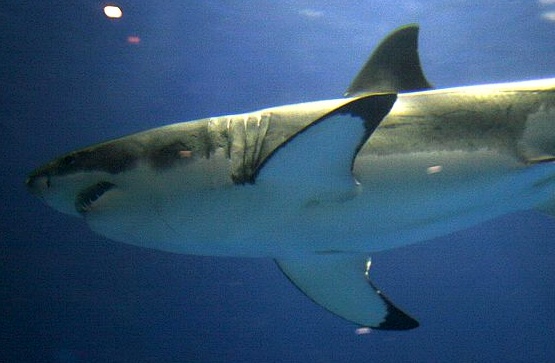Although there is much rejoicing with the recent news that the California Department of Fish and Wildlife has given candidacy species designation on March 1, 2013 to the California great white shark, some biologists are jumping for joy.
(To clarify, great whites are being CONSIDERED for either threatened or endangered status – The California Endangered Species Act requires that a candidate species be treated the same as a listed species in terms of protection.)
In a recent public comment to the California Fish and Wildlife, reprinted on the website Southern Fried Science, Dr. Chris Lowe, outlined three reasons NOT to give California great white sharks special status. A professor of marine biology at Cal State Long Beach and director of CSULB Shark Lab, Lowe has studied sharks for more than 10 years.
Lowe questions the accuracy of the population data of young sharks in California waters; he also sites no evidence from high contaminants as having a significant impact on shark populations. (In fact, pinnipeds – the shark’s main food source – have been multiplying successfully over the last 15 years…and they too have been exposed to those same nasty chemicals, many of which have been banned now.) Finally, Lowe points to research on sharks interacting with gill nets – that number, he says, is far less than originally estimated.
All in all, Lowe sums up the reasons why he’s against the status:
Although concern for adequate protection of apex predators, which naturally have relatively low population sizes is prudent, it is my professional opinion that white sharks should not be considered for listing as threatened or endangered at this time. Time and resources spent evaluating the need for listing of white sharks will reduce critical resources and effort that should be allocated to populations in greater risk. Placing species that truly do not require this level of protection only dilutes the value of this protected status listing.
Right now, the new rules says that if you want to catch a white shark, you’ll need a permit. If you catch one, even unintentionally, you’re up for penalties. Since the 1990s, sport and commercial fishing couldn’t actively seek out sharks. If one happens to drop in your net…well, that was OK. Problem was that scenario was happening a little too often for CFW. This new designation, they say, will stop unintended, and often unlimited, catches by fishermen.
–Brenda Rees

